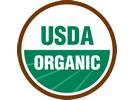USDA: MÁS PODER AL NOP

BILL WOULD BEEF UP USDA'S ORGANIC AUTHORITY From an article in The Packer - The Organic Insider editor@thepacker-mail.com ; Jun. 29, 20129; Publ.date: 06/19/2012 Coral Beach) VERSIÓN EN ESPAÑOL, MÁS ABAJO A bipartisan bill — the Organic Standards Protection Act — introduced in the U.S. House of Representatives would give the U.S. Department of Agriculture more power to crack down on organic fraud. As consumer demand for organic food increases, the need to protect the integrity of the USDA’s National Organic Program increases, Rep. Hanna said. “USDA has some tools, but they need more, such as subpoena power,” Rep. Capps said. Three key provisions of the bill would: · Give the USDA authority to stop the sale of products fraudulently labeled as organic; · Require organic producers and certifiers to maintain records for th...


.jpg)


